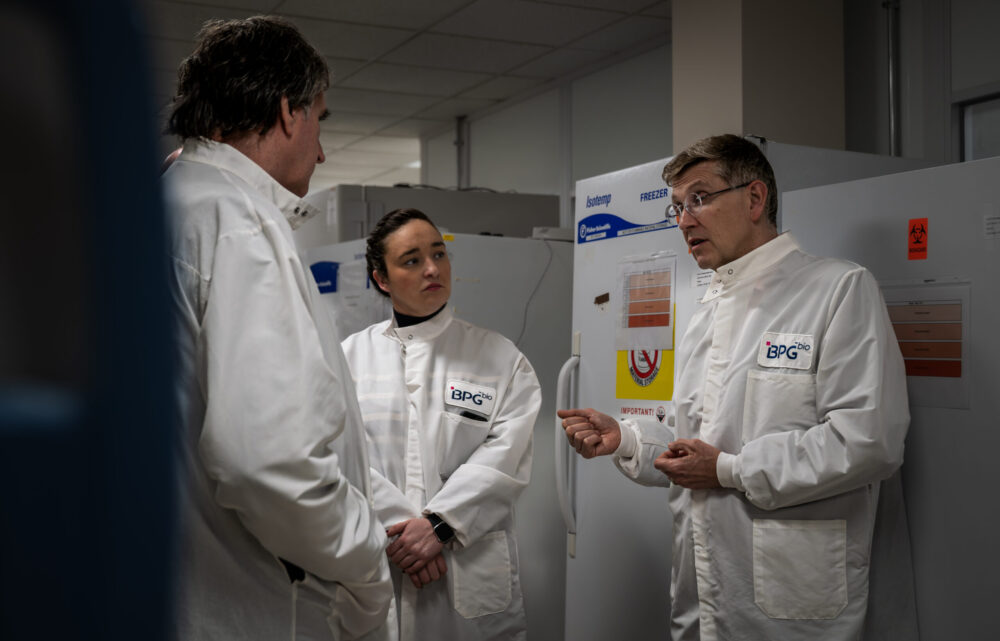
Latest
NHS launches awareness campaign in the North West to help catch lung cancer early
3 years ago

The NHS in the North West is encouraging people with symptoms such as a long-standing persistent cough, to contact their GP practice for potentially lifesaving checks in its latest campaign to catch lung cancer earlier when it is easier to treat.
The launch of the latest Help Us Help You campaign comes after figures suggest people at risk of lung cancer may not be coming forward for care despite it being the biggest cause of cancer deaths in England.
While most other cancer referrals quickly returned to pre-pandemic levels after the first wave of COVID-19, lung cancer referrals only returned to pre-pandemic levels in May 2022.

Cancer health chiefs are warning the public to contact their GP team if they have had a persistent cough for longer than three weeks or notice other symptoms like coughing up blood or persistent breathlessness.
Around 8,496 cases of lung cancer are diagnosed in the North West every year. Lung cancer is one of the most serious type of cancers and last year was the fifth biggest cause of death in England accounting for 26,410 deaths.
Thanks to national awareness campaigns and early diagnosis initiatives, one in every four GP referrals are now for suspected cancer – with the NHS seeing record numbers of people getting checked for cancer over the last year with more than 5.3 million people referred between June 2021 and May 2022, and over 670,000 since March 2020 starting treatment.
The latest campaign will target the groups of people most at risk including over 60s, as well as people who are often more reluctant to visit their GP practice, which is critical to getting an early diagnosis.
Dr Michael Gregory, Medical Director of the NHS in the North West said:
“The rate of lung cancer in the North West is higher than anywhere else in England, and although we have seen record numbers of people coming forward for tests and checks, thanks to our campaigns and early diagnosis initiatives, the referrals for lung cancer haven’t returned to the levels we would like.
“Early diagnosis saves countless lives every year, so it is important that should you have any symptoms of lung cancer, including a continuous cough or breathlessness, to come forward as soon as possible and speak to the staff at your general practice.
“It’s probably nothing to worry about, but if it is cancer, diagnosing it early could save your life.”
The NHS ‘Help Us, Help You’ campaign will run across TV, video-on-demand services such as ITV Hub, radio, and social media over the next few months to spread awareness of lung cancer symptoms.
The new campaign is the latest drive by the NHS to deliver world-class cancer care and restore cancer services following the pandemic.
Karen McCarthy, 66 years old from Manchester, was diagnosed with lung cancer in 2018 and is now encouraging others to speak to their GP if they notice symptoms.
Karen said: “After having a chest infection for more than two weeks, my GP sent me for an x-ray as I was over the age of 60. I was later diagnosed with lung cancer and had surgery to remove part of my right lung which had a small, non-aggressive tumour. It was a scary time but now I feel lucky to be alive. I’ve recovered well although I have noticed a difference in my energy levels compared to before cancer but being four years older could play a part in that. I’m extremely grateful to my doctor who sent me for a life-saving lung screening which has allowed me to see the next generations of my family grow up.

“If you have lungs, you can get lung cancer, even if you’re young and don’t smoke. It’s really important to speak to your GP if you notice any changes to your lungs and breathing, such as a persistent cough. Being diagnosed early could save your life.”
Across the North West, lung trucks are providing screening within the community for those aged 55 – 74 who have been identified as being at increased risk of lung cancer. This initiative not only identifies more cancers quickly but can pick up a range of other health conditions including chronic obstructive pulmonary disease (COPD).









 Subscribe
Subscribe Follow Us
Follow Us Follow Us
Follow Us Follow Us
Follow Us Follow Us
Follow Us Follow Us
Follow Us











